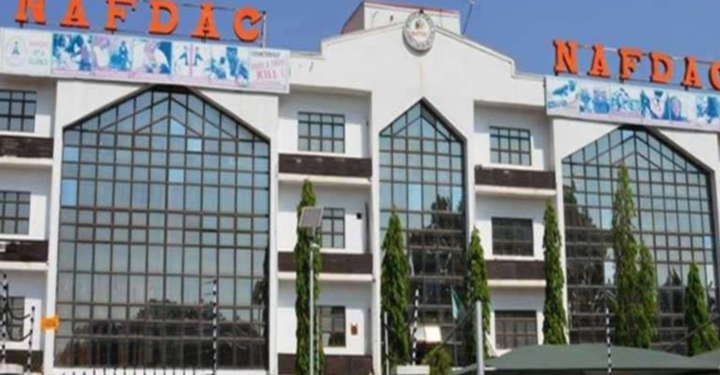The National Agency for Food and Drugs Administration and Control (NAFDAC) has issued a directive banning the use of ethoxyquin as an antioxidant in the feed of food-producing animals in Nigeria.
In a statement released by NAFDAC, the agency highlighted the potential health risks associated with the use of ethoxyquin as a feed antioxidant, emphasizing its role in various health-related issues in animals and humans. The directive is set to impact the agricultural industry and the preservation of food products, as ethoxyquin is a widely used antioxidant in animal feed.
Join our WhatsApp ChannelDr. Ifeoma Akintola, a senior official at NAFDAC, explained the rationale behind the ban in a press conference, stating, “The use of ethoxyquin as an antioxidant in animal feed has been linked to a range of health-related concerns in both animals and humans, including the potential for cancer. We must prioritize the safety and well-being of consumers and ensure that food-producing animals are raised in a manner that aligns with international health standards.”
READ ALSO: NAFDAC Highlights Threats Illicit Trade Poses To Public Health, Pharma Industry
The key issue at the heart of this ban is lipid autoxidation, a natural process that occurs when food comes into contact with air, light, and heat. When oxygen interacts with the lipids in food, it produces oxidants or free radicals, leading to peroxidation, which results in food rancidity.
Antioxidants, whether natural or synthetic, are used to mitigate this process and prolong the freshness and shelf life of food products.
Ethoxyquin, known for its high antioxidant capacity and cost-effectiveness, has long been a preferred choice for protecting animal feed from lipid peroxidation. However, concerns have grown regarding its potential adverse effects on animal and human health. The ban on ethoxyquin as a feed antioxidant marks a shift in animal husbandry and food preservation practices in Nigeria.
In light of this development, it is essential to understand that different processes can alter the properties of animal feed during storage.
Lipids, which are present in feed, undergo chemical reactions when exposed to atmospheric oxygen, leading to the production of oxidants or free radicals, a phenomenon known as lipid peroxidation. Ethoxyquin, abbreviated as EQ, has been a crucial ingredient in animal feed to prevent this process.
While ethoxyquin cannot be used in food intended for human consumption, it can find its way into farmed fish, poultry, and eggs, exposing consumers to this controversial antioxidant. As a result, this ban will not only reshape the agricultural sector but also impact the dietary choices and safety of Nigerian consumers.
The decision to ban ethoxyquin in animal feed underscores the government’s commitment to public health and food safety, signaling a change in the agricultural landscape in Nigeria.
As the ban takes effect, the agricultural industry will need to adapt to alternative methods of preserving animal feed and ensuring the safety of food-producing animals and their products.
Emmanuel Ochayi is a journalist. He is a graduate of the University of Lagos, School of first choice and the nations pride. Emmanuel is keen on exploring writing angles in different areas, including Business, climate change, politics, Education, and others.


















Follow Us